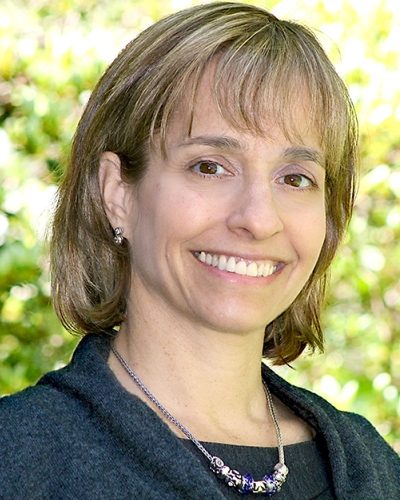How good it is to be here with all of you. There is a Yiddish expression that says you can’t dance at two weddings with one tuchus. Similarly, you can’t lead two Yom Kippur afternoon services with one voice but I have committed to that — so right after delivering this Drash, I’ll head to Queens University to lead our Hillel students in a Neilah service.
We now move from our Yizkor service to our healing service – from mourning the past and what was, to recrafting the pieces of our broken lives into what is and making them into a beautiful mosaic.
The summer of 2020 was bad for most of us. For me it was particularly hard. In reflection, I like to say that I had a minor encounter with breast cancer. In the terms Rabbi Knight laid out for us on Rosh Hashanah, it was just 16 weeks of the 2920 weeks of my life. But at the time, to be honest, it was scary and painful.
I don’t remember the secular date, but on the morning before Kol Nidre 2020, in the aloneness of COVID, I had a celebration alone.
I went to LCI, the Levine Cancer Institute, for my last radiation treatment. I gave Starbucks gift cards and notes to the kind radiation therapists and oncologists to thank them for being those hands and hearts of kindness helping me through the difficult journey. Then I asked if I could ring this bell that was in the hall – the bell I’d heard about from so many congregants with whom I’d prayed over the years and the bell that I had passed by each and every day of my treatment. It was my goal to ring that bell.
The staff was a little surprised. Prior to COVID, the ringing of the bell was a celebration to which family and friends would be invited. I learned at the moment we can celebrate life, even alone.
Like the bell which I’d longed to ring, the shofar sounding the final blast of Yom Kippur is the same. It is a celebration of our survival — not only of making it through another year of Yom Kippur services (which is a feat in and of itself) — but it a celebration of our individual survival and our collective survival.
We all are survivors.
I asked myself, “When does one become a survivor?”
And I asked an expert, Dr. Raghavan, a Temple Beth El member and the primary builder of the Levine Cancer Institute to whom my gratitude is beyond words. Prior to his building LCI, our congregants would travel to far off cities for excellent cancer care and be separated from their families for long stretches time – sometimes even dying far away from home.
Dr. Raghavan told me that survivorship should start at the time of diagnosis.
Being a survivor and making the new mosaic of our lives starts with the moment of shattering.
For all of us that shattering is different – the diagnosis, the spouse who walks out the door, the call informing us our loved one has died, the sign inside our bodies or minds that tells us that something just is not right.
Dr. Raghavan’s prescription: even when the prognosis is alarming and or the outcome is overwhelming, we need to remember that we do not control everything in life. We thus need to maximize life one day at a time – celebrating wins and all good days.
Dr. Raghavan added when it comes to facing cancer: “I believe that the mind plays a big role in helping treatment and the setting of nonmedical goals seems to help. Mothers of young children are amazing at their ability to stay alive until they think the kids will be ok.”
Here’s the thing, as Jews, we have mastered survival.
In fourth century CE, there was an influential Christian thinker St. Augustine of Hippo. Augustine struggled with what to do with the Jews who refused accept the divinity of Jesus but in his mind were needed to preserve and authenticate the Hebrew Bible — what he called the “Old Testament.”
Augustine then authored a stance that would be a pervasive lens through which the majority of our rulers in our history have dealt with us. In his book City of God, Augustine urged that Jews should be able to survive but not thrive.[1]
Separation and degradation was the goal set for us by our adversaries but we never accepted that. For the near sixteen centuries since that statement, our goal as a people was the opposite — not just to survive but to thrive. Throughout our millennia as Jews, we have sung in our shuls, danced at our weddings, and celebrated our sacred time – no matter how great the antisemitic storms outside our doors.
Dr. Rachel Naomi Remen tells the story of when her grandfather gave her a first kiddush cup when she was just a child. He taught her to say the toast, “L’chaim — to life.”
“Is it to a happy life, Grandpa?” she asked him.
“No, it is just to life! Neshuma-le, my sweet soul. “
“Is it like a prayer?”
“Ah no,” he told her. “We pray for things we don’t have. We already have life.”
“Is it written in the Bible, Grandpa?”
“No, Neshume-le,” he said, “It is written in people’s hearts. L’chaim! Means that no matter what difficulty life brings, no matter how hard or painful or unfair life is, life is holy and worthy of celebration.”
Today I celebrate my survival. Today we all celebrate our collective survival – which is miraculous.
Today is day of confession. Here’s mine:
I have a summer birthday when Chip and I annually invite our closest circle of friends to a dinner party. But that summer, I didn’t want to celebrate my birthday because I was sad and I was scared. My best friends came anyway and brought me art supplies as a gift. I had forgotten how much I love to draw. And since that time, I have drawn cards for my family and cards for friends. Cards that they have saved – even on their refrigerators.
I had it all wrong. We can’t wait till our trial has ended to make the beautiful art that is our lives.
We now enter our service of healing. Music heals. Dancing heals. Love heals. Community heals. Doctors and nurses heal, though they can’t always cure. Prayers heal, though they are not always answered in the ways we first envision. Yom Kippur heals. But most of all, living life heals.
The real question of Yom Kippur’s ominous Unetanah Tokef prayer needs to be reframed. The question is not WHO will live but HOW will we live?
The LCI bell, the shofar’s blast, our clinking of glasses and saying “L’chaim – to life” are all similar affirmations. We will not only survive, but we will thrive.
In spite of our pain, in spite of our losses, we will take the broken fragments and make them into the masterpieces that are the essence of who we are.
L’chayim – may we each be written and sealed for a good year. May we live life fully. May we live life well. Amen.
As Moses prayed for Miriam when she became fearfully ill, we pray today:
Eyl na r’fa na lah – O God please heal her, r’fah na lanu – please heal us.
Prayer heals. Music heals. Time heals. The voices of our teen choir heal – giving us faith in the future.
[1] Augstine of Hippo, City of God, (New York: The Doubleday Religious Publishing Group, 1958), 427.




